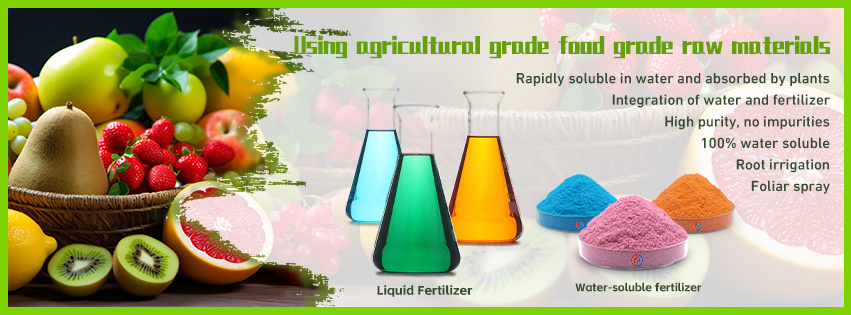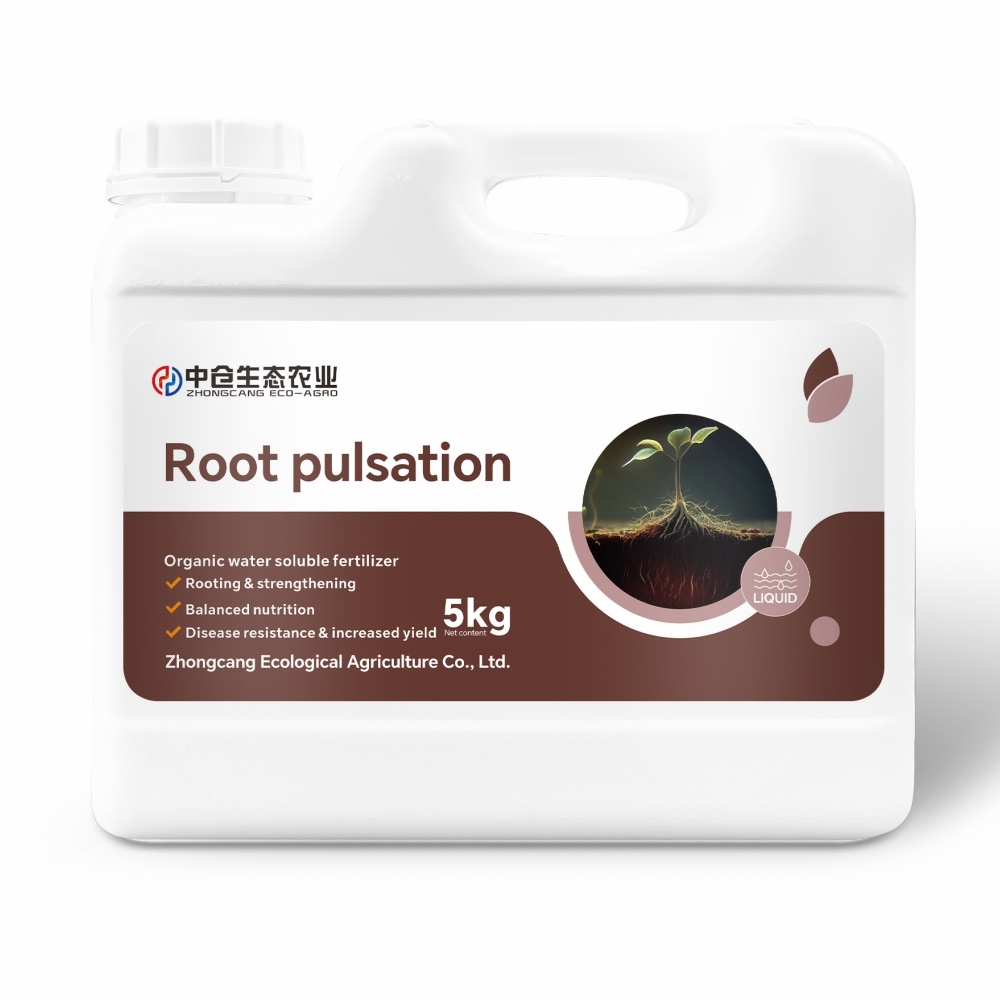The Advantages of Liquid Fertilizer for Modern Agriculture
Release time:
2025/09/28
The Advantages of Liquid Fertilizer for Modern Agriculture
Liquid fertilizer is transforming the way farmers feed their crops. As agriculture shifts toward higher efficiency, sustainability, and precision, liquid formulations have emerged as one of the most effective solutions for modern crop nutrition. Compared with traditional granular fertilizers, liquid fertilizers deliver faster nutrient uptake, reduce waste, and allow growers to target specific growth stages with remarkable accuracy.
In this article, we’ll explore the advantages of liquid fertilizer, its applications across farming systems, and why it is gaining global adoption.

What Is Liquid Fertilizer?
Liquid fertilizer is a water-based formulation containing essential plant nutrients such as nitrogen, phosphorus, potassium (NPK), and micronutrients. Unlike solid fertilizers, it is already dissolved, allowing for immediate absorption by plants. Liquid fertilizers can be applied through foliar spraying, drip irrigation, or fertigation systems, making them versatile for both large-scale farms and greenhouse operations.
Key Advantages of Liquid Fertilizer
1. Faster Nutrient Absorption
Because nutrients are in liquid form, they are quickly available for plant uptake through roots or leaves. This is particularly valuable during critical growth phases such as seedling establishment, flowering, and fruit setting.
2. Precision and Flexibility in Application
Liquid fertilizer can be applied directly to soil, sprayed on foliage, or delivered via irrigation systems. Farmers can adjust nutrient ratios according to crop requirements, soil conditions, and growth stages.
3. Reduced Nutrient Loss
Unlike granular fertilizers, which may leach or volatilize before plants can absorb them, liquid fertilizers minimize nutrient loss. This improves efficiency and reduces environmental impact.
4. Labor and Time Savings
Liquid fertilizers are easy to apply using mechanized systems, saving farmers significant labor compared to manual spreading of solids. This is especially important for large plantations and export-oriented agribusinesses.
5. Compatibility with Modern Farming Systems
Liquid fertilizers integrate seamlessly into drip irrigation and fertigation systems, making them a cornerstone of precision agriculture and greenhouse production.
Applications in Different Farming Systems
Open Field Agriculture
Rice & Wheat: Nitrogen-rich liquid fertilizers accelerate tillering and improve grain yield.
Corn & Sugarcane: Balanced NPK solutions support rapid vegetative growth.
Horticulture and Fruit Orchards
Citrus & Banana: Potassium-based liquid fertilizers improve fruit size and sweetness.
Tomatoes & Vegetables: Foliar sprays correct micronutrient deficiencies and improve quality.
Greenhouses & Hydroponics
Liquid fertilizers are essential in hydroponic systems where nutrients must be delivered directly to plant roots. Their solubility ensures even distribution and consistent growth.
Environmental and Sustainability Benefits
Liquid fertilizers align with the global shift toward sustainable agriculture. By reducing nutrient runoff, they help protect waterways and ecosystems. They also allow for precise application, lowering the risk of soil degradation. Many modern liquid fertilizers are produced with eco-friendly formulations, including bio-based and organic inputs such as seaweed extract, humic acid, and amino acids.
Economic Benefits for Farmers
Though liquid fertilizers can be more costly per unit than granular types, they often provide a higher return on investment (ROI). Farmers save money through reduced application costs, increased efficiency, and higher yields. Crops also achieve better market quality, boosting profitability for export markets.
Common Challenges and Solutions
Storage & Handling: Requires tanks and pumps, but modern systems are widely available.
Initial Cost: Higher upfront price, but long-term benefits outweigh costs.
Clogging Risks: Proper formulation prevents precipitation and keeps systems running smoothly.
Frequently Asked Questions (FAQ)
1. Is liquid fertilizer better than granular?
Liquid fertilizer provides faster absorption and precision application, while granular offers slower, long-term nutrient release. Many farmers use both in combination.
2. Can liquid fertilizer be used on all crops?
Yes, liquid fertilizer is suitable for cereals, vegetables, fruits, and plantation crops. Formulations can be customized for crop-specific needs.
3. How often should liquid fertilizer be applied?
This depends on crop type and growth stage. Many farmers apply liquid fertilizers weekly or biweekly during critical growth periods.
4. Is liquid fertilizer environmentally friendly?
Yes, when applied correctly, it reduces nutrient leaching and runoff, supporting sustainable agriculture.
5. What is the shelf life of liquid fertilizer?
Most liquid fertilizers remain stable for 12–24 months if stored properly in sealed containers.
Conclusion
The advantages of liquid fertilizer make it one of the most important innovations in modern agriculture. With benefits ranging from faster nutrient absorption and improved efficiency to sustainability and profitability, it is reshaping global crop production.
For farmers, agribusinesses, and distributors, adopting liquid fertilizer is not just a trend—it’s a strategic decision to secure higher yields, better quality, and long-term agricultural success.
keywords
| Recent information
CONTACT FORM
We’ll take the time to explain the recommended solution and its price
CONTACT US
Contact: Ms. Dolores Wong
Tel: +8613091226892
Email: dolores@hbzcfertilizer.com
Adds: Zhaojiawa Industry Park,Mingyuedian Town, Dingzhou City, Hebei Province,China.



